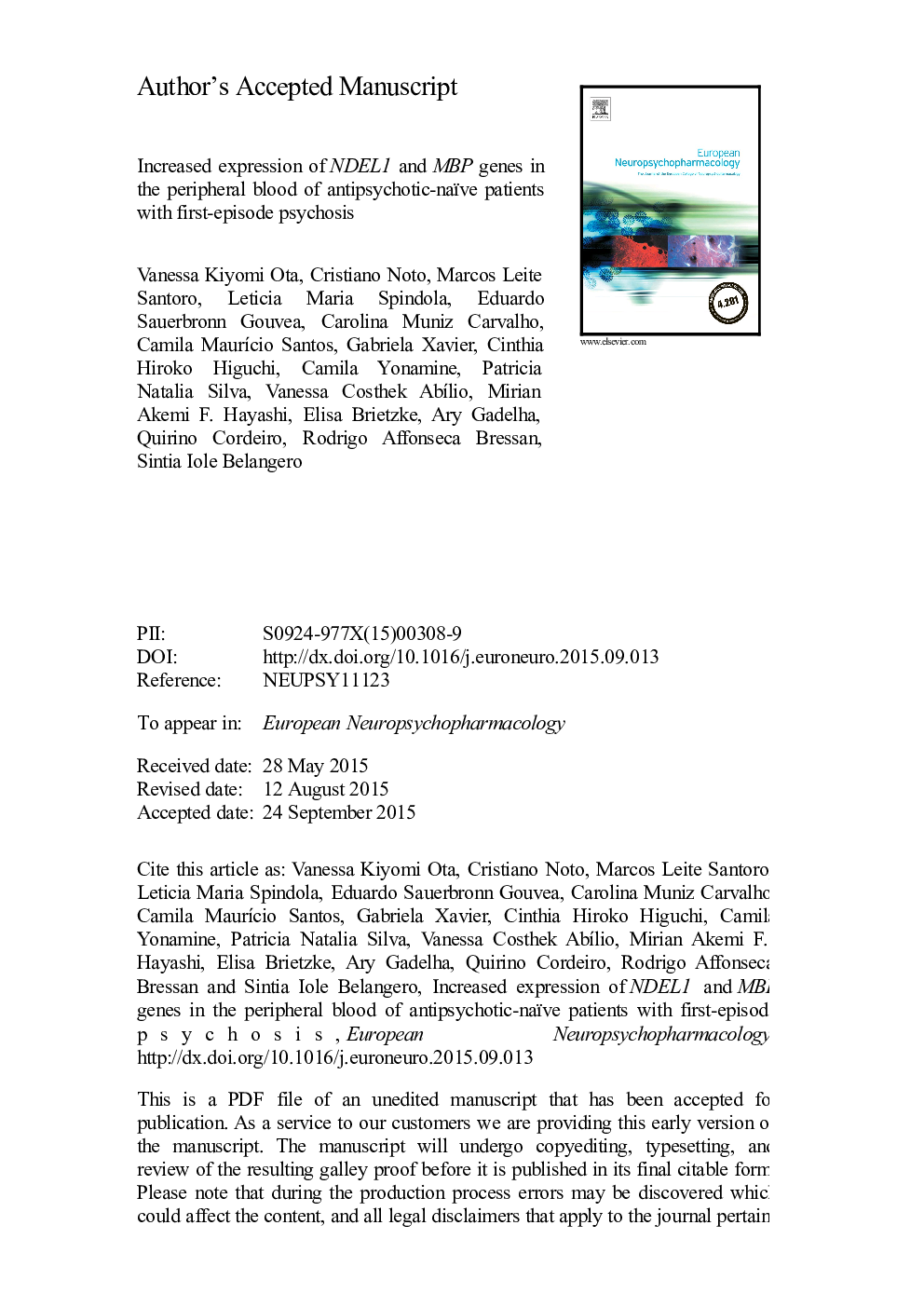| Article ID | Journal | Published Year | Pages | File Type |
|---|---|---|---|---|
| 10299048 | European Neuropsychopharmacology | 2015 | 25 Pages |
Abstract
Schizophrenia is a multifactorial neurodevelopmental disorder with high heritability. First-episode psychosis (FEP) is a critical period for determining the disease prognosis and is especially helpful for identifying potential biomarkers associated with the onset and progression of the disorder. We investigated the mRNA expression of 12 schizophrenia-related genes in the blood of antipsychotic-naïve FEP patients (N=73) and healthy controls (N=73). To evaluate the influences of antipsychotic treatment and progression of the disorder, we compared the gene expression within patients before and after two months of treatment with risperidone (N=64). We observed a significantly increased myelin basic protein (MBP) and nuclear distribution protein nudE-like 1 (NDEL1) mRNA levels in FEP patients compared with controls. Comparing FEP before and after risperidone treatment, no significant differences were identified; however; a trend of relatively low NDEL1 expression was observed after risperidone treatment. Animals chronically treated with saline or risperidone exhibited no significant change in Ndel1 expression levels in the blood or the prefrontal cortex (PFC), suggesting that the trend of low NDEL1 expression observed in FEP patients after treatment is likely due to factors other than risperidone treatment (i.e., disease progression). In addition to the recognized association with schizophrenia, MBP and NDEL1 gene products also play an essential role in the functions that are deregulated in schizophrenia, such as neurodevelopment. Our data strengthen the importance of these biological processes in psychotic disorders, indicating that these changes can be detected peripherally and potentially represent putative novel blood biomarkers of susceptibility and disorder progression.
Related Topics
Life Sciences
Neuroscience
Biological Psychiatry
Authors
Vanessa Kiyomi Ota, Cristiano Noto, Marcos Leite Santoro, Leticia Maria Spindola, Eduardo Sauerbronn Gouvea, Carolina Muniz Carvalho, Camila MaurÃcio Santos, Gabriela Xavier, Cinthia Hiroko Higuchi, Camila Yonamine, Patricia Natalia Moretti,
